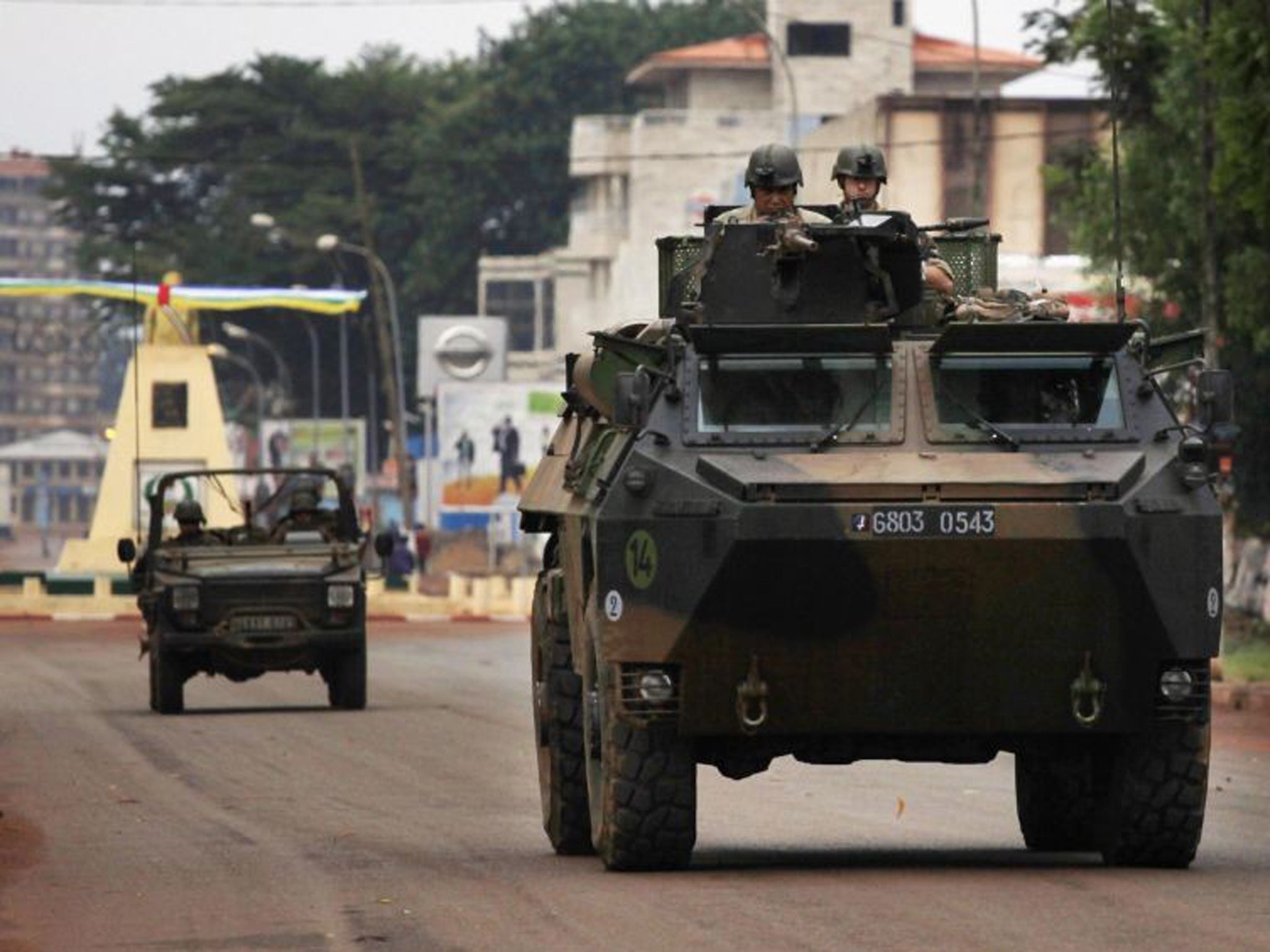France moves quickly after winning UN backing for CAR operation
650 troops on the ground with more to follow, but Hollande vows to keep mission brief

Your support helps us to tell the story
From reproductive rights to climate change to Big Tech, The Independent is on the ground when the story is developing. Whether it's investigating the financials of Elon Musk's pro-Trump PAC or producing our latest documentary, 'The A Word', which shines a light on the American women fighting for reproductive rights, we know how important it is to parse out the facts from the messaging.
At such a critical moment in US history, we need reporters on the ground. Your donation allows us to keep sending journalists to speak to both sides of the story.
The Independent is trusted by Americans across the entire political spectrum. And unlike many other quality news outlets, we choose not to lock Americans out of our reporting and analysis with paywalls. We believe quality journalism should be available to everyone, paid for by those who can afford it.
Your support makes all the difference.France has launched its second major African intervention in a year as its troops rushed to the Central African Republic’s capital, Bangui, on Friday to stem violence that has claimed more than 100 lives this week.
Just hours after it won UN backing for intervention on Thursday, France began assembling a new 1,200-strong force for CAR.
“The operation has effectively started,” the Defence Minister, Jean-Yves Le Drian, told RFI radio. He said one company had arrived in Bangui from a French base in nearby Gabon, and that a helicopter group was due to be in place later in the day.
He added that the night had been calm after fighting on Thursday between the mainly Muslim former rebels now in charge of the country and a mix of local Christian militiamen and other fighters loyal to the ousted president François Bozize. A Reuters witness and an aid worker said at least 105 people were dead.
Speaking hours after France secured UN backing for the mission on Thursday, President François Hollande vowed that the French operation would be limited in time, with the aim of handing over to African forces when that became possible.
In January France launched a military operation in Mali which stamped out an advance by al-Qa’ida-linked insurgents on the capital, Bamako.
Mr Le Drian said it was “not impossible” that France could wind down its presence in the Central African Republic after six months, but the CAR Prime Minister, Nicolas Tiangaye, said it was likely the French troops would have to remain longer.
“Six months seems a bit short to me; in my view we are looking at a year. If it [the French force] manages to sort out the problems, so much the better, but I would prefer it to stay in place for a year,” Mr Tiangaye told RTL radio.
The former French colony has slipped into chaos since mainly Muslim rebels seized power in March, leading to tit-for-tat sectarian violence with the Christian majority. Thursday’s violence was the worst the capital has seen during the current crisis.
As of Thursday, France had some 650 troops based at Bangui airport – a number that Mr Hollande said would double with the arrival of reinforcements from French bases in neighbouring countries.
Central African Republic is rich in gold, diamonds and uranium but decades of instability and spillover from conflicts in its larger neighbours have kept it mired in crisis.
The French Foreign Minister, Laurent Fabius, said the annual Africa-France summit which started in Paris yesterday would discuss CAR operations, including the future handover to African or UN-led forces.
Asked about his previous warning that there was a risk of genocide – which critics have called alarmist – Mr Fabius said: “The term is debatable. I won’t employ it again as genocide is something quite specific … [but] we have all the elements of a major crisis and powder keg.” He said there had been what he called “the start of a religious confrontation”.
Mr Fabius said French forces would initially focus on securing Bangui and roads leading to Chad and Cameroon. They would also deploy with African forces to other towns including Bossangoa, about 190 miles north of the capital, which witnesses said had come under heavy fire from former rebels on Thursday.
Michel Djotodia, the leader of the Seleka former rebel alliance, is now CAR’s interim president, but he has struggled to control his loose band of fighters, many of whom come from neighbouring Chad and Sudan.
Asked whether Mr Djotodia was a legitimate leader and should remain in power, Mr Fabius said he had gained power “in a debatable way” but added: “I think we don’t need more difficulties by adding the departure of the president.” He said, however, that elections should begin by early 2015 at the latest.
Join our commenting forum
Join thought-provoking conversations, follow other Independent readers and see their replies
Comments